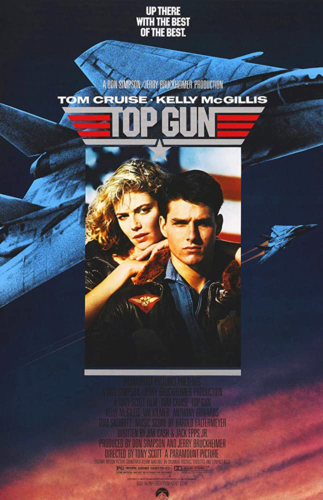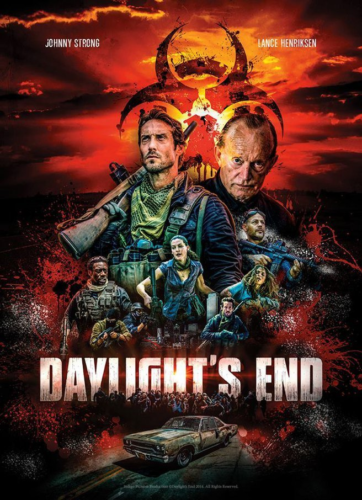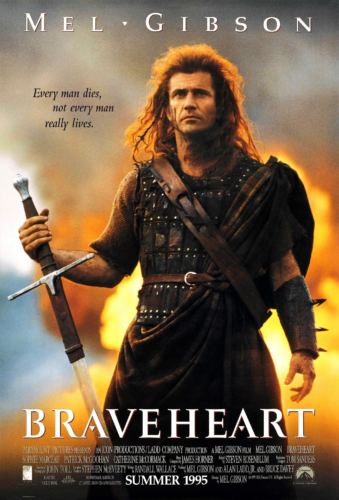 Top Gun (1986) – First time watching it in over 30 years, and I had forgotten pretty much everything except the “You’ve Lost That Lovin’ Feeling” scene.
Top Gun (1986) – First time watching it in over 30 years, and I had forgotten pretty much everything except the “You’ve Lost That Lovin’ Feeling” scene.
Apparently, the message is the chicks will find you irresistible if you’re a pushy horn-doggin’ showoff who happens to be Tom Cruise.
This is the movie that “made” Cruise a star — but ironically, it’s Cruise who carried this movie with his energy. Just imagine some other young semi-known actor in the main role, and you just know that the movie would be a half-forgotten ’80s artifact.
 Daylight’s End (2016) – A few years after fast zombies destroyed the world, a lone armed drifter connects with a group hunkered down in an old police station who want to get to the airfield where a flyable plane can take them to a rumored safe colony.
Daylight’s End (2016) – A few years after fast zombies destroyed the world, a lone armed drifter connects with a group hunkered down in an old police station who want to get to the airfield where a flyable plane can take them to a rumored safe colony.
Most post-apocalyptic movies obviously owe a lot to The Road Warrior (1981), but this one — which is a zombie post-apoc movie, so entirely different — wears that inspiration on its sleeve, mimicking specific story beats and including little call-outs here and there.
Johnny Strong, playing the armed drifter Roarke, isn’t called upon to act much, as being taciturn and distant is most of his character. The female lead, Chelsea Edmundon, basically has the role of providing the “emotional exposition.” Fortunately, the case is anchored by the supporting duo of Lance Henricksen and Louis Mandalor as father-and-son cops who’ve been leading this community.
Given how bad it could have been, I have no complaints.
 Braveheart (1995) – Mel Gibson’s hairpiece stars as preternaturally hunky William Wallace, the only Scotsman with access to a blowdryer in the 13th century, as he fights off the dastardly Englishmen (and some dastardly countrymen) and makes the women swoon.
Braveheart (1995) – Mel Gibson’s hairpiece stars as preternaturally hunky William Wallace, the only Scotsman with access to a blowdryer in the 13th century, as he fights off the dastardly Englishmen (and some dastardly countrymen) and makes the women swoon.
The battle scenes are rousing and well-choreographed, and the score by James Horner is one of his most famous. On the other hand, the historical inaccuracies are serious enough to discount this as a “historical” movie (granted, still better in that regard than Hans Christian Andersen), and the fetishizing of word “freedom” rivals its use in the classic Star Trek episode with the Yang and the Coms.